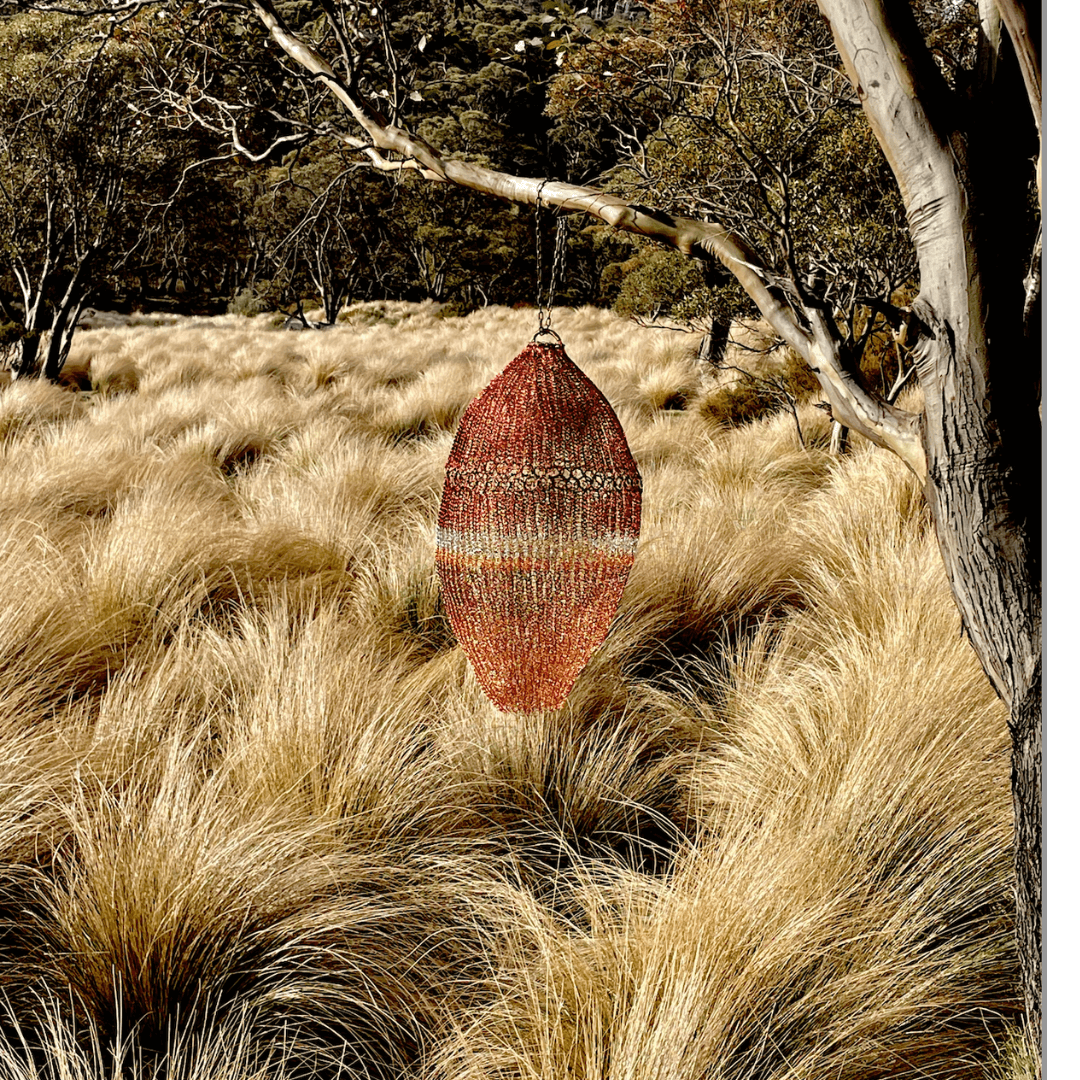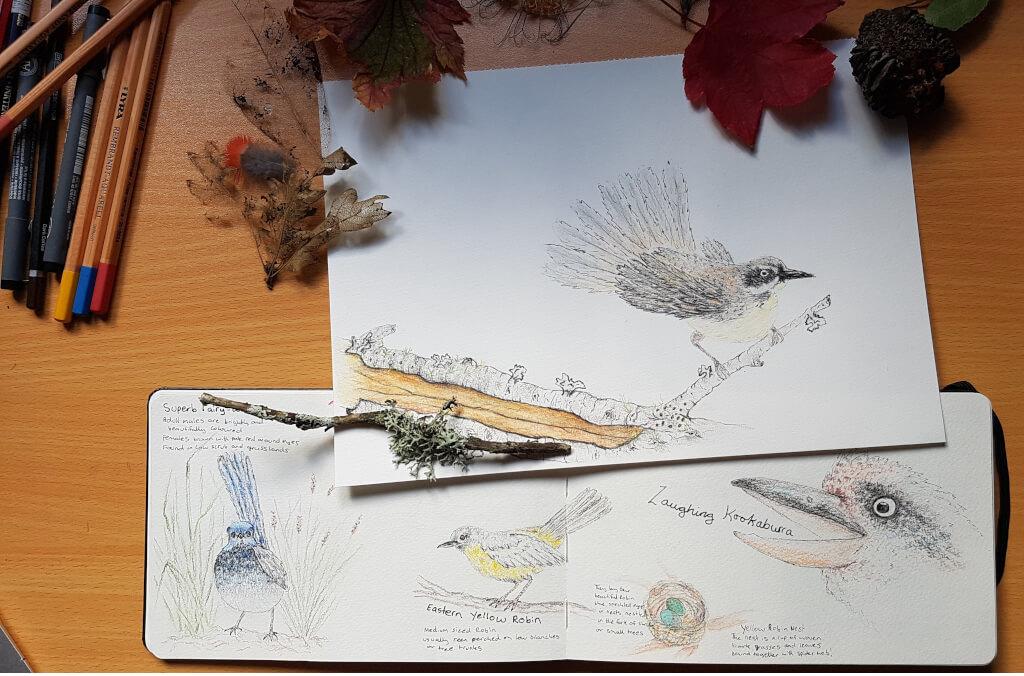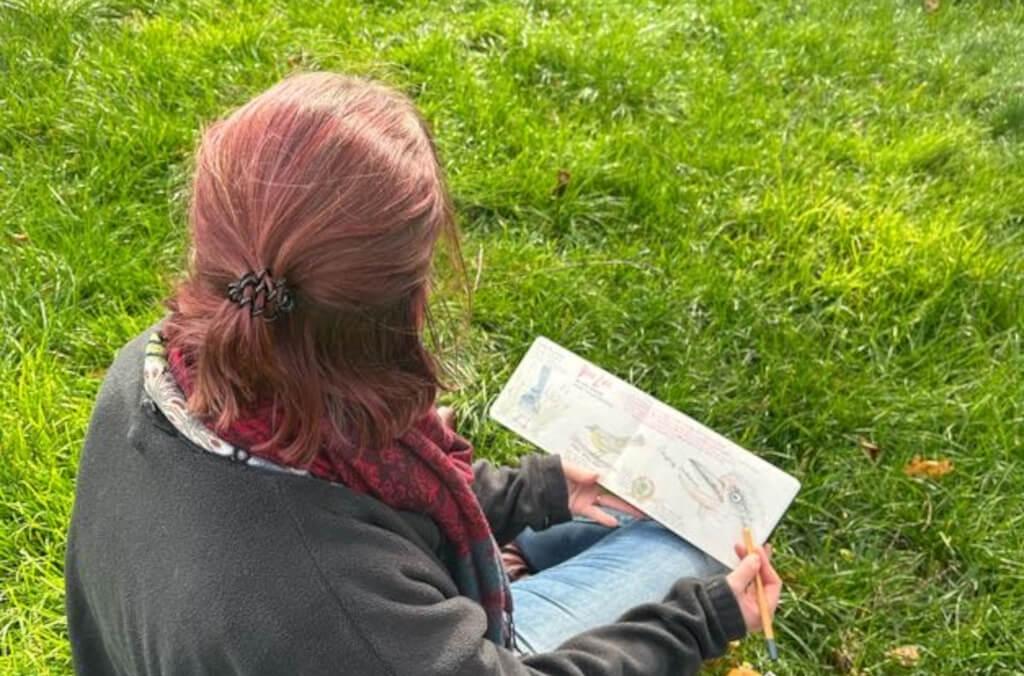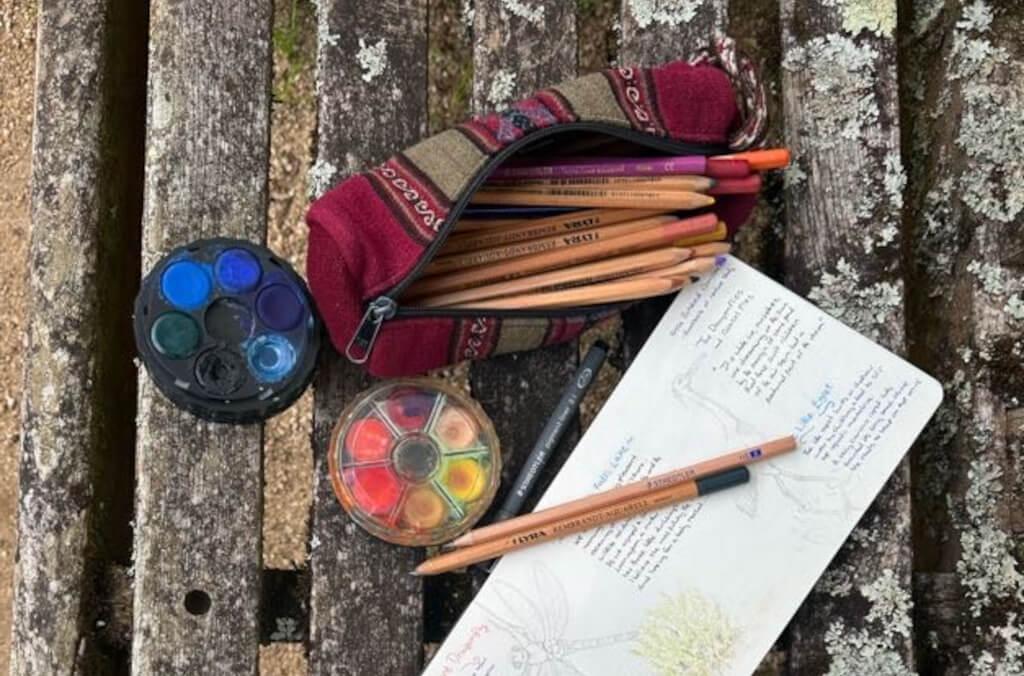Nature Journaling at Mount Tomah
Experience the enchanting beauty of the Blue Mountains Botanic Garden Mount Tomah through the refined practice of nature journaling.
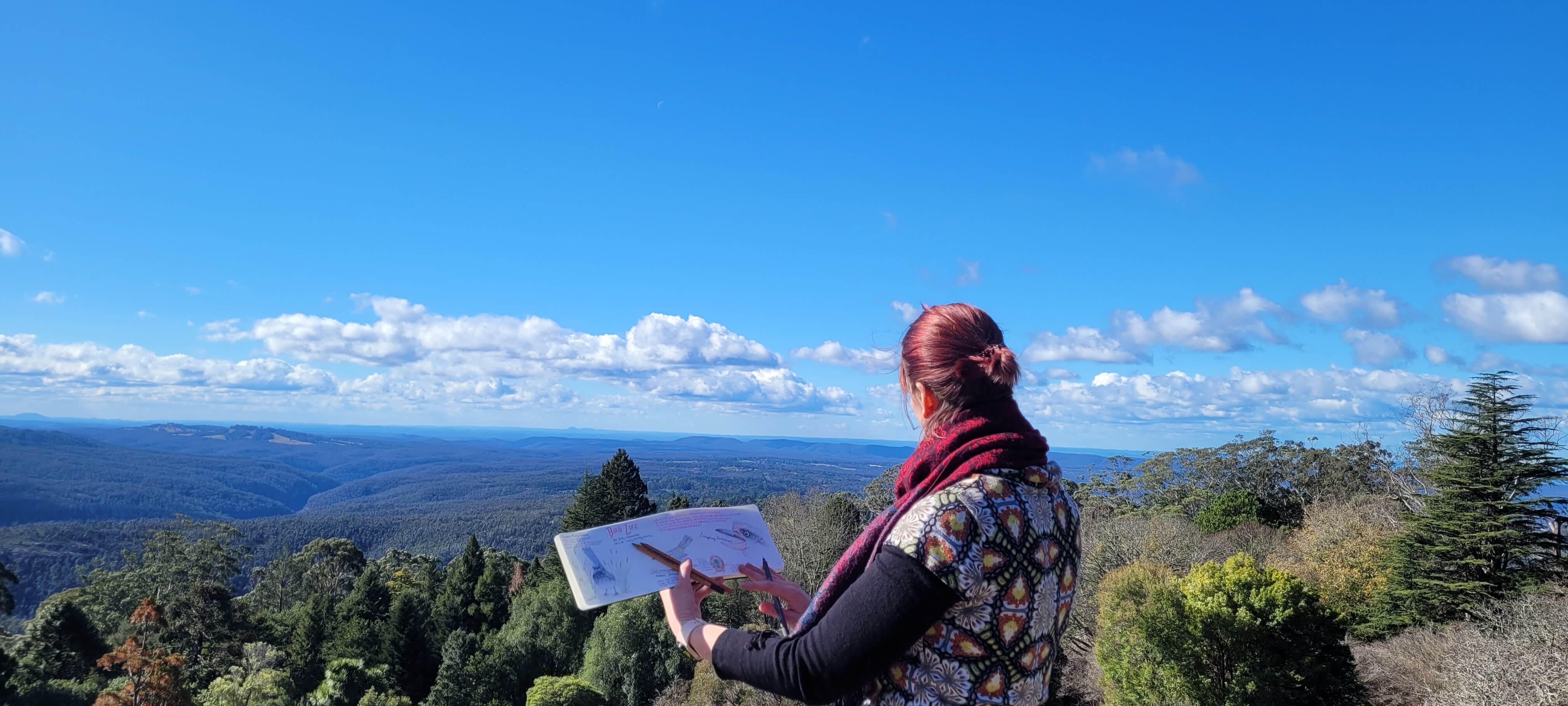
Meet at the Waratah Education Centre, Blue Mountains Botanic Garden Mount Tomah
Selected Saturdays
10am – 12.30pm
$109 per adult
$98 per child
$98 Foundation & Friends members
2.5 hours
Nature Journaling in the Blue Mountains
This accessible, hands–on activity engages individuals of all ages in learning, mindfulness, and a deeper connection with nature. The process enhances skills in observation, perception, inquiry, and making meaningful connections.
Guided by an experienced Garden Educator, these workshops offer a unique opportunity to explore the numerous benefits of nature journaling. As the landscape evolves with the changing seasons, it is an ideal time to immerse yourself in nature and appreciate its intricate details.
Join us for a series of interactive workshops designed to cultivate mindfulness, creativity, and profound observation. Each session will feature a distinct theme, exploring different aspects of the Botanic Garden, encouraging exploration and a greater appreciation for the surrounding environment.
This experience includes a morning tea.
You are welcome to bring your own art materials if you like (A5 art journal, artline pen, lead pencil and rubber and a set of coloured pencils/watercolour pencils). Art materials will be available for you to use on the day. Wear comfortable clothing and shoes. We will be walking throughout the Garden during each class, please be mindful of the hilly nature of the site and uneven surfaces. Be prepared for the weather, bring a hat, warm jacket and rain coat.
Optional: A hiking portable stool, or a pillow, or a blanket or similar for comfort sitting down to journal. A Keep cup to take a hot drink with you.
Nature journalling, the practice of documenting observations and reflections on the natural world, offers a multitude of benefits:
- Connection with Nature: By spending time observing and documenting nature, individuals develop a deeper connection with the natural world. This fosters a sense of appreciation, wonder, and respect for the environment.
- Mindfulness and Stress Reduction: Engaging in nature journaling encourages mindfulness as it requires focused attention on the present moment. This can reduce stress, anxiety, and promote overall well-being.
- Enhanced Observation Skills: Nature journaling involves keen observation of details such as the shape of leaves, behaviour of animals, or changes in the weather. Over time, this sharpens observational skills which can be applied to other areas of life.
- Learning and Education: Nature journaling is a hands-on approach to learning about biology, ecology, botany, and other natural sciences. It encourages curiosity and inquiry, making learning more engaging and memorable.
- Creativity and Self-Expression: Journaling allows individuals to express themselves creatively through writing, drawing, painting, or other artistic mediums. It provides a space for self-expression and experimentation.
- Documentation and Record-keeping: Nature journals serve as personal records of experiences, observations, and discoveries in nature. They can be valuable resources for future reference, research, or sharing with others.
- Environmental Awareness and Conservation: Through nature journaling, individuals develop a deeper understanding of environmental issues and ecosystems. This can lead to increased awareness and advocacy for conservation efforts.
- Physical Health Benefits: Spending time outdoors for nature journaling often involves physical activity such as walking, hiking, or exploring. This promotes physical fitness and overall health.
- Community and Social Connection: Nature journaling can be a shared activity, fostering connections with fellow nature enthusiasts, local communities, family members or work colleagues. This sense of belonging and camaraderie adds to the enjoyment of the practice.
- Emotional and Spiritual Growth: Immersion in nature through journaling can evoke feelings of awe, gratitude, and interconnectedness. This can lead to personal growth, reflection, and a deeper sense of purpose or spirituality.
Discover more events

